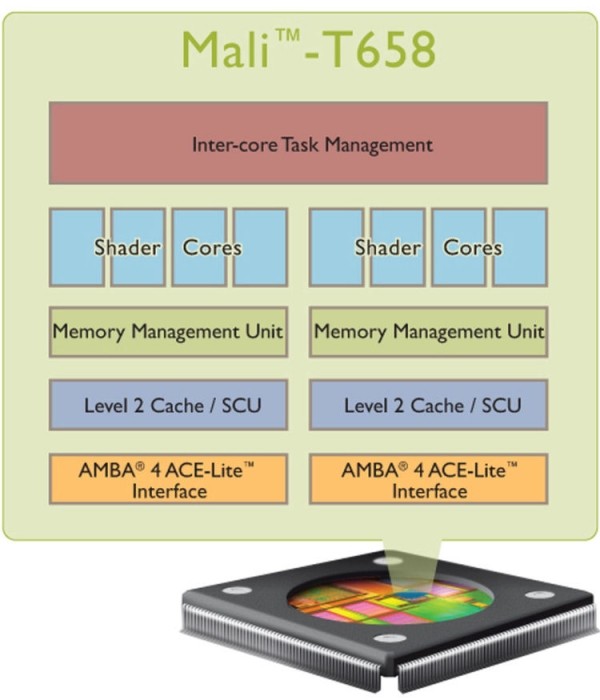ARM has released a press statement today announcing that its upcoming Mali-T658 GPU chip is set to offer up to ten times the performance of the current Mali-400 MP, which is found in phones such as the Samsung Galaxy S II and is the most powerful GPU present on a mobile device today. The new chip builds on the Mali-T604, which itself is a next generation chip currently in development, but will offer a fourfold performance increase over that one as well.
ARM's Mali-T658 GPU will pave the way for faster games, desktop-like performance and the possibility of more complex software becoming a reality on smartphones and tablets. The firm expects the performance of its new chip to equal the video performance of a Playstation 3 games console.
"Next generation consumer devices based on the Mali-T658 GPU will address the growing user expectation for slick user interfaces and desktop-class graphics," said Pete Hutton, General Manager of ARM's Media Processing Division. "Intuitive user interfaces will mean that consumers can access the full functionality of their connected devices, for richer user experiences. This includes HD gaming and new compute-intensive applications, such as augmented reality."

The new design should be available for widespread use in about two year's time and manufacturers will be able to link up to eight cores together with the new chip – in comparison to the four cores maximum with the current Mali-T400 chip.
As with previous Midgard architecture GPUs, the new Mali-T658 chip will support a wide range of graphics and compute APIs, including Microsoft DirectX 11, Khronos OpenGL ES, OpenVG, Khronos OpenCL, Google Renderscript and Microsoft's DirectCompute.
"The idea is that when the full performance is required, you power up all of those cores. But having a multi-core architecture means that when the performance needs are lower, we can power some of those cores down," said Jem Davies, of ARM's Media Processing Division.
The chip designer has also stated it will work with all upcoming CPU designs in perfect harmony, as well as alongside the new ARMv8 64-bit architecture announced to the world last week.
Just last month, ARM published outstanding third quarter earnings, which saw profits double for the U.K. Cambridge-based company despite a slowdown in the industry.